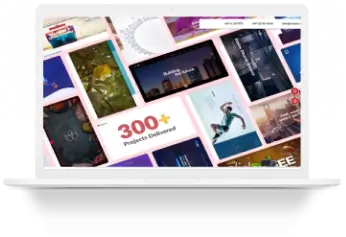Nothing is constant, especially in this ever-changing world of social media. It can be very challenging for digital marketers and social media managers to stay updated with all the social media terminologies used with the advent of a large number of social media terms and digital networks.
Have a look at this social media glossary that include all the most used social media terms and their social media definitions that you should know to understand social media.
Let’s get right to it.
A
- Abandonment Rate
The percentage of online customers who abandon their shopping carts before finalizing a purchase decision, in contrast to those who finalize their purchase process and proceed to the final checkout with their shopping cart.
- AI
AI refers to Artificial Intelligence, which is intelligence exhibited by machines. It is applied to mimic cognitive functions associated with human intelligence such as learning and problem solving.
- Algorithms
In social media, algorithm is the social media term that determine the type of content that must be displayed on your News Feed and search results.
- Analytics
Analytics help you figure out what happened. It involves technological tools to gather data, patterns in behavior and user interaction with different elements.
- Avatar
A visual representation of online users. Social media profiles pictures are the best example of an Avatar.
B
- Big Data
Big data is large sets of massive and complex data. These data sets are layered with information and good analysis can reveal surprising insights
- Bio
Bio is an acronym of biography, that is a small part of your online profile that explains to new or potential followers who you are. A good bio can increase your searchability and attract new followers.
- Bitmoji
It is a customized avatar or emoji that can be added to Slack, Messenger, Gmail or any other online network.
- Brand Advocate
In digital marketing world, a brand advocate is a customer that is so delighted and satisfied with your services or products. Brand advocates do work on their own and they don’t miss any single opportunity to promote your brand.
C
- Caption
A short description of your social media post be it an article, image, infographics, SlideShare, or presentation.
- Chatbots
A type of bot that uses artificial intelligence to perform tasks through virtual conversation. Chatbots are usually used for messaging apps and have potential to provide better customer service.
- Clickbait
Web content that has a misleading caption that allures readers and increase their curiosity to click through to read the full article. The main objective is to generate page views and advertising revenue.
- Click through Rate
Click through rate or CTR is a common metric that is used for reporting on the number of users who viewed a piece of content and then performed the desired action such as clicking on the ad, filling the lead form, and clicking a link in an email marketing campaign. CTR is usually used for search engine marketing and different other performance-driven channels.
- Community Management
The practice of building strong relationships by engaging with those people who engage with the common interest. The main objective of developing relationships is that community act as brand advocate on behalf of the common interest.
- Content Curation
The process of searching through the web to find the best and most relevant content for your target audience and then organizing and presenting it to them in the best possible way. It doesn’t involve posting new content.
- CMS
Content Management System or CMS is an online application that allows you to draft, share, edit, schedule, index and monitor your content. It is backbone of your content marketing strategy.
- Content Marketing
A strategy that is based on attracting and retaining customers through the production and distribution of valuable content such as blog posts, videos, infographics, eBooks, whitepapers, how-to guides and more. Content marketing efforts help brands gain customer loyalty and create a big impact on purchase decision by providing useful, educational and entertaining content.
- Conversions
A conversion is a desired action taken by a visitor on your website. This positive action shows that a visitor is converting into a customer. Conversions can be in form of sales, webinar registrations, newsletter signups, eBook downloads, and other important actions that lead to sales.
- Crowdsourcing
The term crowdsourcing refers to the process of giving your online community power to assist in services, content and ideas for your business.
D
- Direct Message
A Direct Message or DM is a private message sent to your followers. DM can only be sent to Twitter users who are already following you and you can receive DMs from your followers.
- Disappearing Content
The type of content like Instagram Stories and Snaps that disappear after a certain amount of time.
- Display Ad
Display ads are small banner ads that are appeared on different websites in the form of video, audio, images, flash or text-based. Display ads are used for retargeting.
E
- Engagement
Social media engagement is the act of discussing, messaging or interacting with other people on social media channels. In short, any interaction your brand has with its audience.
- Engagement Rate
Engagement rate is the percentage of users who viewed your posts and actively engaged with them such as clicked the link, liked, favorited, shared, or retweeted. Engagement rate tells the quality and success of your social media posts.
F
- F4F
Follow for Follow or F4F, is an invitation to follow a user on Instagram or Twitter with the guarantee that they will follow you back.
- Feed
A social media data format that provides users with a steady stream of information and updates.
- First Response Time
The key performance metric of social customer service that tells how long it takes a brand to give its first response to a user’s comment or inquiry on social media.
G
- Geofilter
They are special graphical overlays that show the geographic location of Snapchat users. Geofilters can be created by brands or Snapchat users themselves.
- Geolocation
Geolocation or geotagging is the practice of tagging an image, video or message with a specific location.
- Geotargeting
An option present in many social media platforms that allows users to share their content with
geographically defined audiences to better connect with people in particular cities, areas or countries.
- GIF
Graphics Interchange Format or GIF refers to a file format that supports both static and animated photos. It shows a short video clip in a more condensed image format.
H
- Handle
Handle is used to describe your account name. For example, Branex’ Twitter handle is @branex_ae. A reliable handle helps with discoverability.
- Hashtag
In social media world, a word or phrase preceded by # sign to make that particular word or phrase discoverable to people with common interests. Hashtags if used properly can help brands to increase brand recognition.
I
- Impressions
The number of time an ad, sponsored update, or promoted post is displayed.
- Inbound Marketing
Inbound marketing is a technique for drawing customers to products and services via content marketing, social media marketing and search engine optimization.
- Influencer
A social media user who have a large following and can reach to significant audience to drive awareness about a brand, product, service, topic or trend.
K
- Kik
A mobile messaging app that allows users to connect with others by using a username instead of using their cell phone numbers to share text messages, videos, images or more.
L
- Like-baiting
The act of explicitly requesting likes, shares, comments to boost engagement on Facebook. Facebook new algorithms have reduced the visibility of like-baiting posts in users News Feed.
M
- Marketing Automation
A combination of technology channels and tricks that enable brand to automatically deliver personalized content to their potential and existing customers through a number of online platforms, like social media, emails, and websites.
- Meme
Any idea, trend or behavior that is transmitted from person to person through speech, media, gestures and different other forms of communication.
- Mention
The process of tagging another user’s handle or account name in a social media post. Mentions usually send a notification to that user, and it can allow other users to click through to the mentioned user to check his bio or profile.
- Microblogging
Posting smaller, frequent number of posts to a number of microblogging platforms such as WordPress, Tumblr, BlogSpot, and more.
N
- Net Promoter Score
A customer loyalty metric that is based on a question: how would you recommend our products or services to a friend or colleague on a scale of 0 to 10? Those who respond with a 9 or 10 are brand promoters, a 7 or 8 are passive promoters, and a 6 or below are detractors.
- Newsjacking
The act of referencing a new story, topic, article, trend or news in order to connect with the audience following or discussing that particular topic.
O
- Organic Reach
Explains the number of unique visitors who view your content without any paid efforts. Visitors come across this content through streams, feeds, posts and pages of trusted brands, friends, family and colleagues.
P
- Paid Reach
Just like organic reach, the number of visitors view your published paid content such as banner ads, sponsored stories, promotional material.
- Permalink
The URL address of a post.
- Podcast
A type of audio file available through the web, usually produced as a series that listeners subscribe to.
R
- Real-time Marketing
The process of connecting with an online community around current trends, events and user feedback.
- Retargeting
An online advertising technique that involves targeting visitors who showed an interest in your products or services.
- Response Rate
An engagement metric that is used to analyze how much the brand is interacting with your social media audience.The formula of engagement rate is: The number of mentions you have replied in a given period of time divided by the total number of mentions you have received.
- RSS
RSS is a format for syndicating web content. Readers can subscribe to RSS feeds to automatically receive updates through a news reader.
S
- Social Media Listening
The process of finding and analyzing what is being discussed about a brand, topic, individual, product or social media channels.
- Social Media Marketing
The use of social media by digital marketers to boost brand awareness, figure out target audience, generate qualified leads and build strong relationships with customers.
- Social Media Monitoring
Listening and responding to brand and keyword mentioning on social media.
- Social Media ROI
A measurement of the effectiveness of a brand; investment in social media.
- Social Selling
The use of social media by sales professionals to enhance their reputations, expand their networks and attract potential customers to do business with them.
- SoLoMo
SoLoMo is the combination of three consumer trends: using social media (So), location-based relevance (Lo) and mobile adoption (Mo) in which consumers tend to prefer to access apps and websites through smartphones.
T
- Thread
A strand of messages that represent a discussion or part of a discussion.
- Timestamp
The date and time that a message is posted to a social media channel, usually shown below the headline or username.
- Trend
A topic or hashtag that gains popularity on social media at a given time.
- Trend jacking
When a brand or person tries to get benefit from a social media trend by adding their own relevant content.
- Triage
The process of prioritizing, analyzing and responding to inbound social media messages.
U
- URL
URL is an acronym of Uniform Resource Locator which is the address of a page on the World Wide Web.
- URL Shortener
A tool that is used to condense a URL into a shorter format to make it social media friendly.
- UGC
(UGC) stands for User-generated Content which is the defining characteristic of social media. UGC is the type of content, videos and images that have been created and posted online by social media users for non-commercial purposes.
V
- Vanity URL
A vanity URL is a custom branded URL that is used for marketing purpose.
- Viral
The term used to explain an instance in which content such as blog post, infographic, video, or image achieves significant awareness. Viral distribution of content depends on word of mouth and frequent sharing of that particular content piece across the internet.
- Vlogger
A person who creates and broadcast video blogs.
W
- Word Cloud
Word Cloud also known as tag cloud or weighted lists are the visual representation of text where the frequency of words is determined by its size. This tool helps identify the repeated words in the document.
- Webinar
An online seminar or conference that is hosted by a brand or a professional to educate audiences about a specific topic while allowing them to discuss the topic on social media using the webinar’s unique hashtag.









